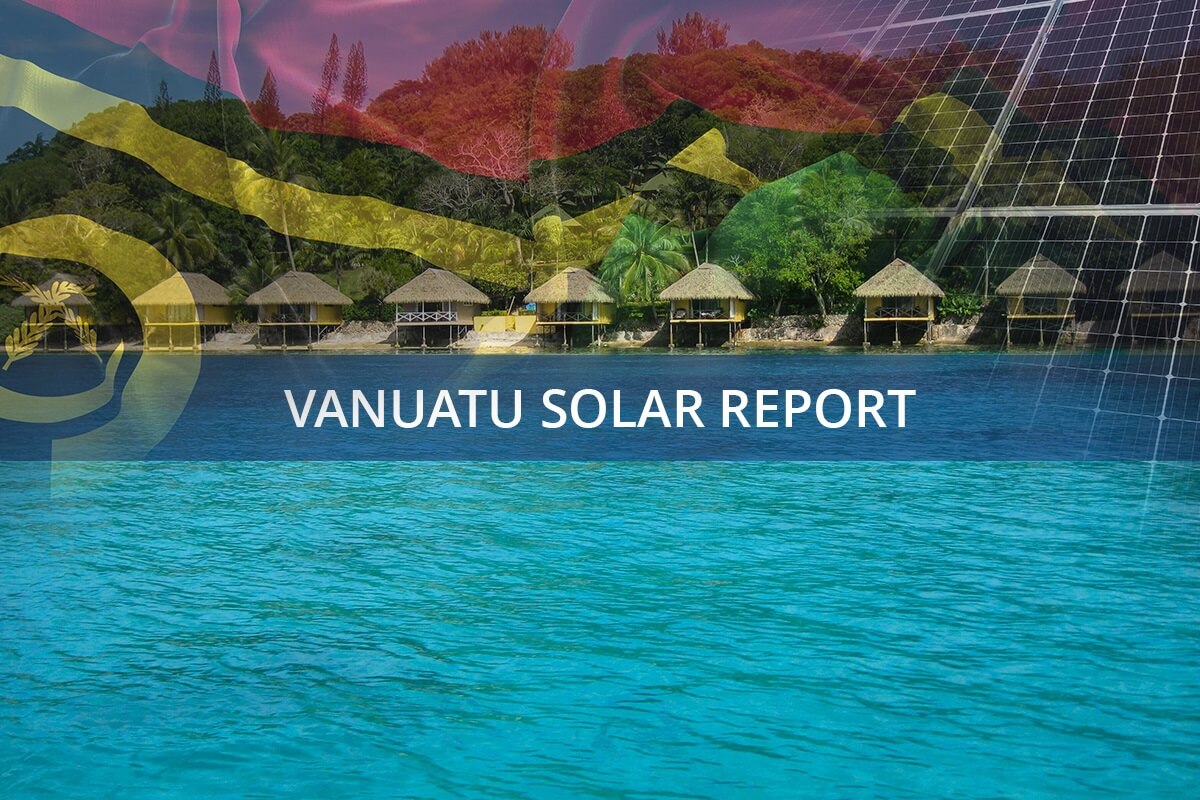Vanuatu has launched its largest solar farm near its capital, Port Vila, which features 22,000 solar panels. The solar farm will generate 14,000 megawatt-hours of electricity annually, meeting one-third of the island’s energy needs and significantly reducing reliance on diesel fuel.
Vanuatu solar farm marks a milestone in renewable energy
Vanuatu, a Pacific island nation highly vulnerable to climate change, has taken a significant step towards sustainable energy. The country has launched its largest solar farm near the capital, Port Vila. This new solar farm — featuring 22,000 solar panels — is set to revolutionize the island’s energy landscape.
The solar farm will generate 14,000 megawatt-hours of electricity annually. This output is expected to meet one-third of the island’s energy needs. The shift to solar power will drastically reduce Vanuatu’s reliance on diesel fuel, slashing the island’s diesel consumption by 3.7 million liters each year.
Cutting carbon emissions with the Vanuatu solar farm
The new solar farm is expected to cut carbon emissions by 8,000 tonnes annually. This reduction is crucial for Vanuatu, which has been a vocal advocate for climate action. The country has been at the forefront of climate discussions, even leading a United Nations campaign for an advisory opinion on climate change and human rights.
Prime Minister Sato Kilman highlighted the importance of this project in a statement. “The development of this solar farm is a critical step in Vanuatu’s journey to achieve energy independence, reduce its carbon footprint, and build a more resilient and sustainable future for all Ni-Vanuatu,” he said.
The project aligns with Vanuatu’s national energy roadmap, which aims for 100% renewable energy by 2030. The solar farm is a significant milestone in this journey.
Vanuatu solar farm driving economic growth and sustainability
The solar farm is not just an environmental achievement; it is also an economic one. The project is expected to create jobs and stimulate local economic growth. The government hopes that this success will attract further investment in renewable energy.
Prime Minister Kilman emphasized the broader impact of the project. “This initiative is not only an environmental milestone but also an economic opportunity for Vanuatu,” he stated. “We are creating jobs, fostering economic growth, and setting the stage for future investments in renewable energy.”
The project was developed by the Vanuatu Utilities and Infrastructure Limited (VUI), a public-private partnership. The VUI invested more than 1 billion Vatu (US$8.4 million) in the solar farm. The project is expected to pay for itself in savings on diesel fuel within a few years.
Vanuatu solar farm sets a model for the Pacific region
Vanuatu’s new solar farm serves as a model for other Pacific island nations. The region is heavily reliant on imported fossil fuels, which are both costly and environmentally damaging. By investing in renewable energy, Vanuatu is showing that there is a viable alternative.
The solar farm is just the beginning. Vanuatu plans to expand its renewable energy capacity in the coming years. The government is exploring additional projects, including wind and hydropower.
The success of the solar farm is expected to encourage other Pacific nations to follow suit. The region is rich in renewable energy resources, including solar, wind, and geothermal energy. By harnessing these resources, Pacific nations can reduce their dependence on fossil fuels and build more sustainable economies.

